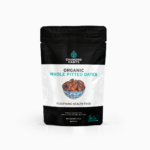Milk products compared
Non-dairy additives
More than a third of branded “milk” products contain non-dairy additives, such as minerals, vitamins, or vegetable or fish oil. Under the Food Standards Code the manufacturers are not allowed to call these products “milk” on the label, yet they look like milk, are packaged like milk and are kept in the milk fridge in the supermarket. These products cost more and often come with beguiling claims that owe more to marketing spin than fact. They include the following:
Low in saturated fat
Farmers Best Original (Dairy Farmers) contains much the same amount of fat as low-fat milk (1.4%) but less saturated fat and cholesterol because the dairy fat has been replaced with canola oil. Although the level of saturated fat is half the amount in regular low-fat milk, on average it’s only about 0.8% anyway. In a 250mL serve, you’ll save only 5% of an adult’s maximum recommended intake of saturated fat – hardly worth paying $2.63 per litre, which is twice the price of regular low-fat milk.
Hearts and minds
Brownes Heart Plus claims to be “an easy and convenient way to boost your daily intake of omega-3s”; Dairy Farmers Kids and Pura Kids claim to be “natural brain food” and the claimed benefit of Farmers Best Source of Omega-3 is in the name. There’s now strong evidence that omega-3 fatty acids can reduce your risk of heart disease, and growing evidence that these fats are good for the brain development of infants, even before they’re born.
Unfortunately, these products might not do much to boost your family’s omega-3 intake. One 250mL serve of Dairy Farmers Kids or Pura Kids contains only 30mg of omega-3, whileFarmers Best Source of Omega-3 squeezes in 33mg – a lot less than the 230mg of omega-3 you’d get from a small (50g) serving of Atlantic salmon. Brownes Heart Plus contains a more useful amount (200mg per serve), although still short of the National Heart Foundation’s recommended daily intake of 400mg of omega-3 for women and 600mg for men.
Calcium and bones
“Good source of calcium” or “high in calcium” are common claims. Some brands, such as Anlene, Brownes and Physical, also add vitamin D, which promotes calcium absorption. Calcium is essential for building and maintaining strong bones but in reality all milk is a good source; one serve (250mL) provides more than 25% of the recommended daily intake. And if you get some exposure to sunlight you’re most unlikely to lack vitamin D. However, elderly people who have higher calcium requirements might benefit from these supplements, and also those more at risk of vitamin D deficiency, such as dark-skinned or veiled women and their children.
Plant sterols
Pura HeartActive claims to lower cholesterol by up to 15% because it contains plant sterols. These really can lower your cholesterol, but what Pura doesn’t make obvious is that in one serving you get only a third of the amount that’s needed. You’ll still need to eat other foods to which plant sterols have been added, such as some margarines and yoghurts, to derive any real health benefit.
Dietary fibre
Both Pauls Trim healthplus+ FIBRE and Rev healthplus+ FIBRE boast of being “the easiest way to get the added goodness of dietary fibre you can’t see or taste”. These contain inulin, a substance extracted from chicory roots or made synthetically from ordinary sugar (sucrose). It counts as dietary fibre under the Food Standards Code but there’s little evidence it provides the same health benefits. You can save money by using cheaper regular milk and enjoying foods naturally rich in fibre that have proven health benefits, such as fruit, vegetables and wholegrain cereals.






0 Comments